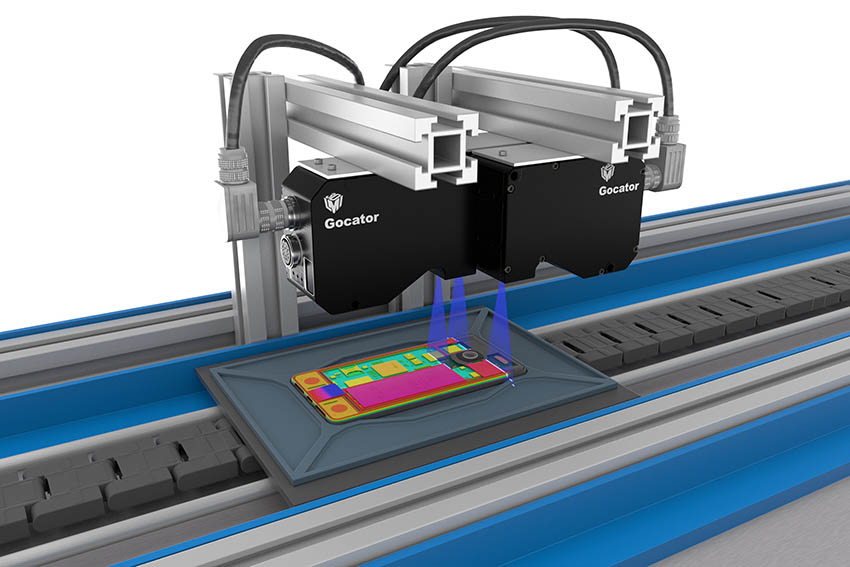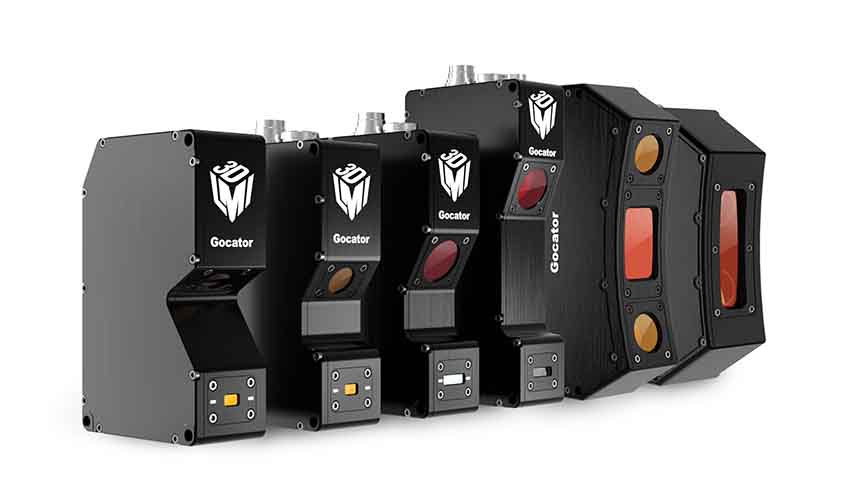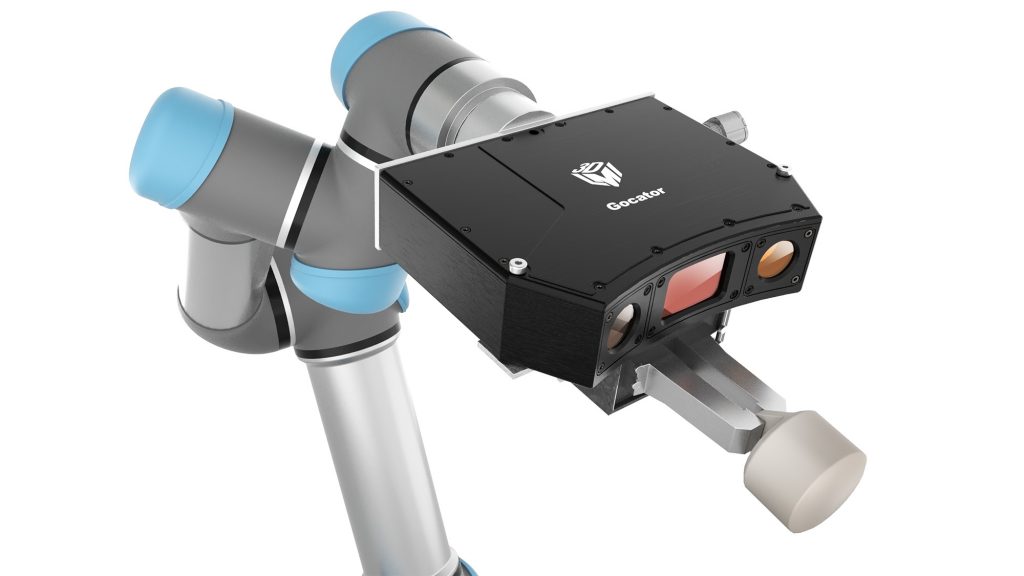As the global leader in 3D scanning and inspection, LMI Technologies works to advance quality and productivity with 3D sensor technology. Our award-winning, FactorySmart® laser, snapshot, and line confocal sensors improve the quality and efficiency of factory production by providing fast, accurate, reliable inspection solutions that leverage smart 3D technologies. Unlike contact based measurement or 2D vision, our non-contact solutions add 3D shape information that is critical to achieving 100% quality control.
Interview with Len Chamberlain, Chief Commercial Officer at LMI Technologies.
Easy Engineering: What are the main areas of activity of the company?
Len Chamberlain: We are primarily an exporter of 3D sensor products and services into all major manufacturing centers around the world covering the Americas, EMEA, and APAC regions. Our company’s ongoing mission is to help customers use 3D vision technologies to improve their factory production, especially in applications where 2D technology is unable to meet their scanning and inspection needs (e.g. for the accurate measurement of shape/geometry of manufactured parts and assemblies).
Compared to competing vision technologies, our smart 3D solutions feature embedded technologies that are easily implemented and more cost-effective, while delivering the highest measurement accuracy and 100% quality control in challenging inline industrial environments. In short, our solutions not only enhance profitability and minimize time-to-market, they also help our customers stay ahead of their competition.
E.E: What’s the news about new products?
L.C: LMI is highly unique in both the solutions we offer our customers and in the underlying technologies that empower those solutions. We are continuously working to improve existing product offerings while also introducing innovative new technologies into the market
Here a few examples of two examples of recently released products:
i. Gocator® 5500 Smart Line Confocal Sensors
LMI’s Gocator 5500 Series of Smart 3D Line Confocal Sensors adds patented line confocal imaging technology to the Gocator® family. These line confocal sensors deliver high-speed, wide-coverage line scanning with simultaneous generation of 3D topography, 3D tomography, and 2D intensity data. This allows Gocator® 5500s to scan practically any material type––including multi-layered, transparent/translucent, curved edge, shiny/specular, high-contrast textured, mixed, and many more––with submicron precision, and at a level of quality and speed that outperforms competing confocal technologies. These sensors are by far the most advanced sensors in LMI’s portfolio.

ii. Gocator 2600 4K Laser Profilers
The industry leading Gocator® 3D smart sensor family introduces 4K+ resolution laser profiling to measure microscopic features or larger objects. Custom optics and a powerful 9-megapixel imager deliver 4200 data points per profile for high-resolution 3D scanning and inspection across wide fields of view––in applications such as EV battery inspection, food processing (baked goods production), building materials (furniture, doors/windows, planks, sheet metal), automotive (air spring and wheel inspection), rubber and tire production, and general factory automation.
E.E: What are the ranges of products?
L.C: LMI’s globally recognized sensor product lines include Gocator All-In-One 3D Smart Sensors (laser, snapshot, line confocal), FocalSpec LCI 3D Line Confocal Sensors, and chroma+scan 3D Log and Board Scanners. We now also offer full-service AI-based solutions for deep-learning driven industrial inspection.
From laser point and line profile sensors to structured light (fringe projection) and smart line confocal technologies, the company delivers specialized smart sensor solutions into a wide range of inline industrial applications in automotive, consumer electronics, EV battery, food processing, packaging & logistics, road and rail, and timber processing.
LMI sensors generate both 2D intensity and 3D shape data of manufactured products used for multi-dimensional measurement and quality inspection. These versatile sensors come in a variety of speeds, resolution, and fields of view so users can choose the best solution for their application needs.
Common to this wide selection of sensor products is an industry-leading smart sensor design architecture that includes web-browser interface, onboard data processing, built-in measurement tools, I/O connectivity, native multi-sensor networking capability, and sensor acceleration with a PC application or dedicated hardware device––all of which make LMI smart sensors the most cost efficient and scalable vision solutions on the market today.
E.E: At what stage is the market where you are currently active?
L.C: The 3D inline sensor market continues to grow along with general factory automation markets. This growth is driven by the need to measure shape to confirm product assemblies will achieve 100% fit and finish and the automation of factories with robots that need 3D vision “to see” parts.

LMI Technologies continues to look for strategic opportunities that expand our portfolio and provide us with new and innovative ways to better serve our customers. This approach includes a continued commitment to filling critical technology gaps, and increasing market penetration by identifying and developing previously untapped opportunities for vision technology adoption and growth.
E.E: What can you tell us about market trends?
L.C: The machine vision industry is a very dynamic environment. Each year we see many new companies emerge and existing companies expand into the space. At the same, there is also consolidation happening within the global market, with a large number of acquisitions and mergers each year. The market for vision products is growing year over year and the competition is fierce so companies have to be constantly advancing their technology and solution offerings to be successful.
More specifically, from the time of the start of the global pandemic we have seen impact on the demand-side, with drastic changes in demand due to the effect of numerous lockdowns and supply-level fluctuations. Through the beginning of the pandemic in 2020, numerous industries delayed or canceled projects given the economic uncertainty. This was followed by a strong recovery in 2021, which was dampened by semiconductor supply challenges.
As a countermeasure, LMI Technologies has leveraged its global position as a leading machine vision supplier to secure acquisition of key electronic components, proving its strength by outperforming the market in this area.
E.E: What are the most innovative products marketed?
L.C: LMI Technologies is committed to continually designing and developing innovative products for the machine vision market––from hardware to software and beyond. Our most recent AI-based solution is a strong example of that approach.
LMI Technologies has developed an innovative solution and service offering that applies machine vision, AI and cloud connectivity to inspection tasks in various production environments such as meatpacking, food processing, wood processing and other industries where traditional rule-based algorithms have failed to meet customer requirements.

FactorySmart® AI Solutions is an end-to-end customer engagement that includes edge hardware running AI algorithms that support factory communication with PLCs and logic controllers, and a user interface for production staff. LMI’s support services utilize cloud connectivity to monitor system performance, health data and provide software updates.
The end product is a fully deployed production-level visual inspection system for the customer that LMI supports throughout the lifetime of its use. These FactorySmart® AI systems have been successfully deployed in many industries including in food and medical device inspection. FactorySmart® AI systems are unique in the marketplace in that they deliver highly accurate and reliable automated defect detection, classification, and grading applications that do not require the customer to invest in engineering expertise, training servers, or system maintenance.
FactorySmart® AI is a resilient automated system that reliably outperforms standard production systems or human operators, increasing the production yield as well as the quality and safety of the end product. Material waste is reduced through the increased yield of the production process and the reduced possibility for recall through higher quality enforcement. The reduction in human operators and human contact also decreases the risk that the plant faces from emerging factors such as pandemic risk.
E.E: What estimations do you have for 2022?
L.C: Machine vision will continue to be a key driver of increased quality, decreased cost, and reduced waste, and these essential manufacturing outcomes will fuel the rapidly increasing adoption of vision systems.
LMI Technologies will continue to leverage its leading global position in 3D technologies in order to convert more of the existing 2D machine market over to 3D vision by offering customers smart solutions for all their factory automation needs.

